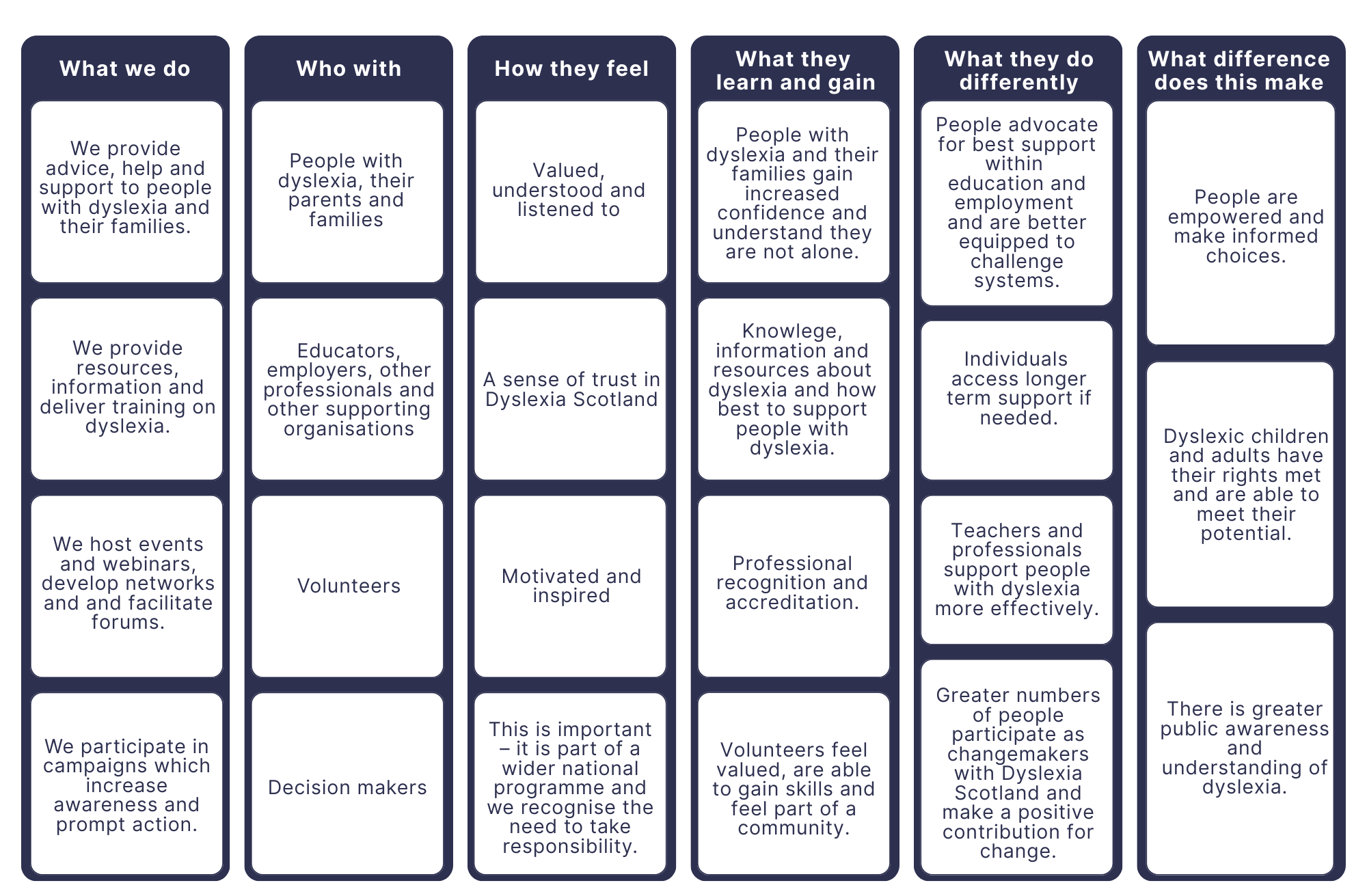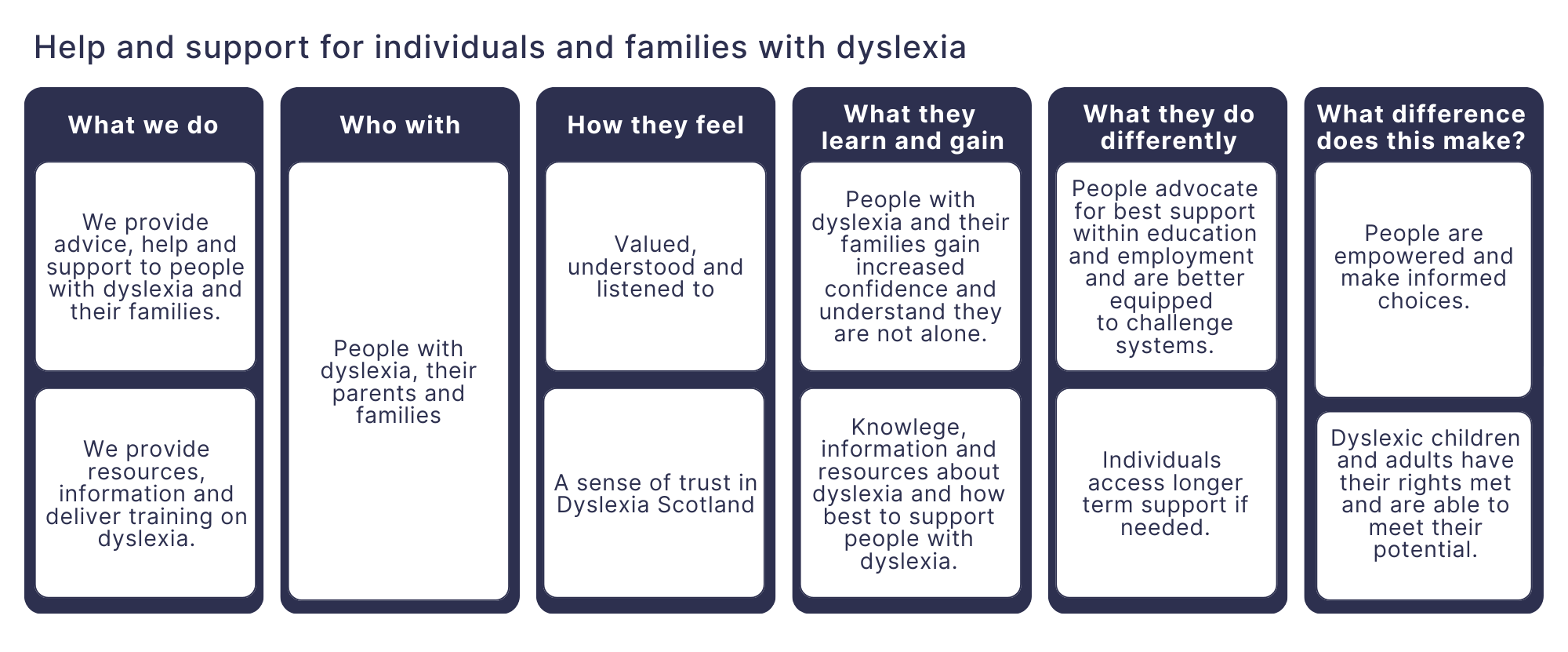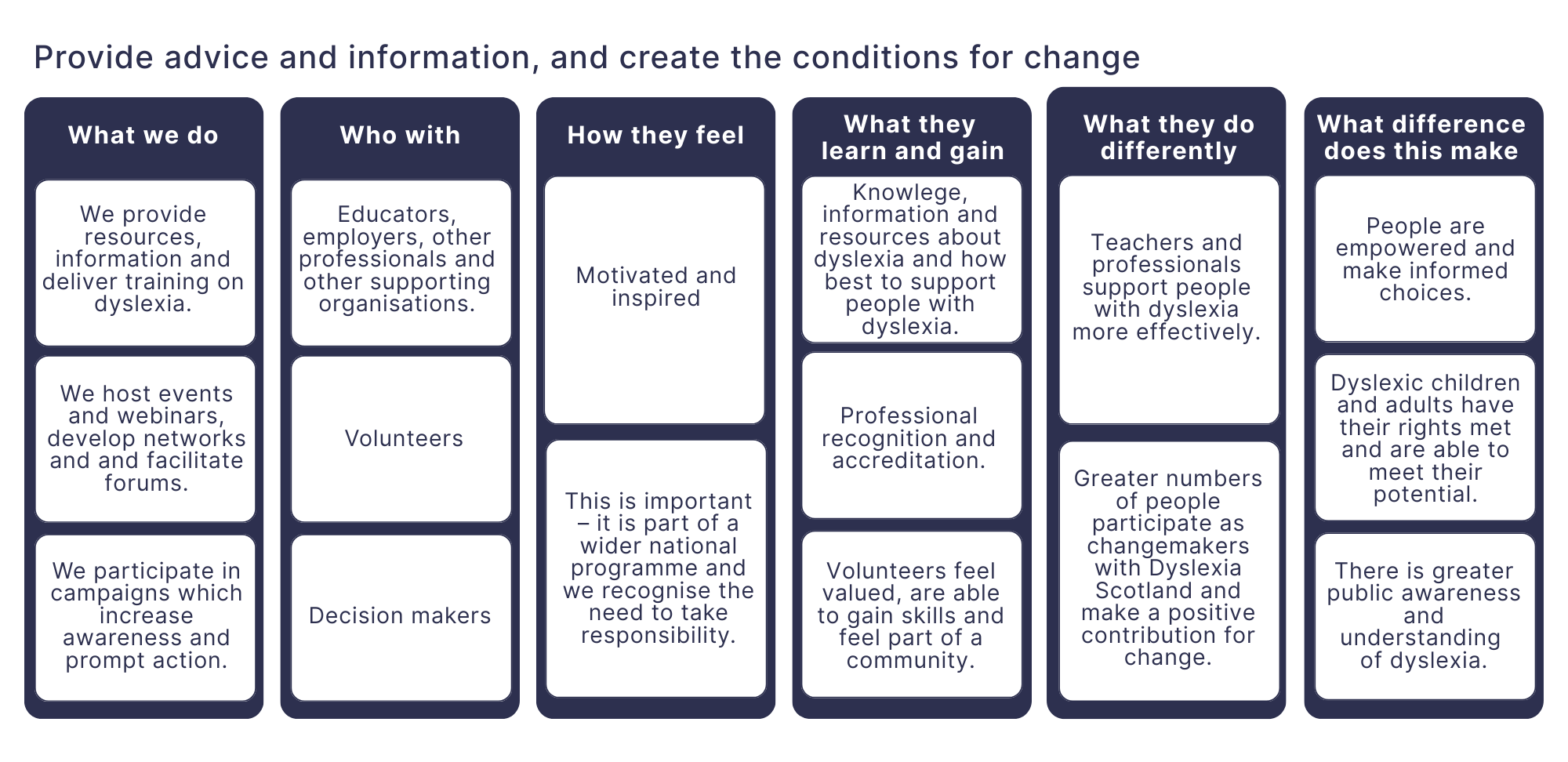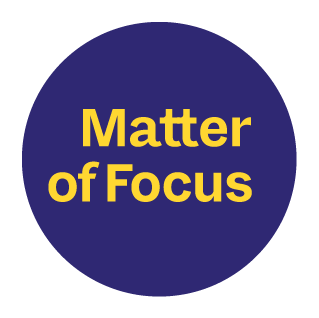About this work
Dyslexia Scotland works towards creating a dyslexia-friendly Scotland by inspiring and enabling all people with dyslexia to realise their potential and encouraging change-makers to help.
Dyslexia Scotland’s small team works across diverse projects with local and national partners to make a difference to individuals and families with dyslexia. They have built a strong community of ambassadors, supporters and volunteers to help deliver services and raise awareness of dyslexia.
The team approached us for help in drawing out common themes across their multiple strands of work so that they could understand, track and tell a cohesive story of their contribution towards the organisation’s vision and mission.
What we did and who with
Alongside the core team from Dyslexia Scotland, we engaged a small group of key partners who brought valuable wider perspectives on the context of this work and experiences from previous successful collaborative projects.
Together we developed a robust, proportionate evaluation framework in OutNav that would be manageable with their capacity. This was achieved across a series of facilitated workshops and meetings to:
- Map the context for their work and examine factors outside their direct control that might help or hinder success.
- Tell stories of success from their work to highlight how it makes a difference. These positive sessions provide a useful way of examining how change happens, which can help to tell the bigger story of any organisation.
- Map how their activities can or could contribute to their overall vision. The resulting outcome map held within our software OutNav outlined an organisation-level theory of change.
- Identify key measures of success, data and evidence against each part of the map.
- Assess progress towards activities, engagement, and outcomes to tell the story of their work. This is to build a powerful impact story ready to report to a wide range of stakeholders.
How the Dyslexia Scotland team felt about this work
Throughout our work together, Dyslexia Scotland recognised the value of our approach. They viewed it as an important opportunity to understand and tell a compelling impact story and implement learning from their work.
The team was realistic about the time and resource commitment that doing this work well would require. Between our workshops, they invested time to embed this new way of working in ways that could help wider organisational goals, like understanding impact, using data for decision-making and regularly reflecting on progress.
“We felt supported throughout the process of getting to grips with OutNav. The reflective processes were really helpful in encouraging us to recognises and assess our impact and the Matter of Focus colleagues were so positive and encouraging.”
Katie Carmichael, Lead for Creative and Digital, Dyslexia Scotland
What Dyslexia Scotland has learned and gained from this work
Dyslexia Scotland developed a clear and refined outcome map setting out at an organisational level how they are contributing to empowering, informing and supporting people with Dyslexia to meet their potential.

Two core change pathways are plotted through the map, one for the projects and services that work directly with individuals and families, and a second for activities aimed at influencing policy and practice and creating the conditions for wider societal change.


Each of these two core pathways builds an evaluation framework which clearly sets out how the team can bring data and evidence across the pathway to understand if their work is making a difference.
Working within OutNav, the team can collate their data and evidence across the map, rating their progress and how confident they are in their evidence at each step, thereby building a clear picture of their progress towards change.
The team can use the evaluation framework to continue to track their impact into the future. Through their subscription, the team can access ongoing help with using OutNav for their evaluation.
What the Dyslexia Scotland team now does differently
Using OutNav the team can go through cycles of self-assessment and reporting. OutNav also facilitates the production of reports that draw the story of their work together that they can share with funders, their board, and wider stakeholders.
Dyslexia Scotland continues to work within OutNav, using it to produce quarterly reports on their progress.
What difference does this new way of working make?
Dyslexia Scotland can be confident in their contribution to improving outcomes for individuals with dyslexia and their families and to making Scotland more dyslexia friendly. With a clear evaluation framework within OutNav, they know what data and evidence they need to collect to tell a robust, cohesive story about the difference that their work makes.
